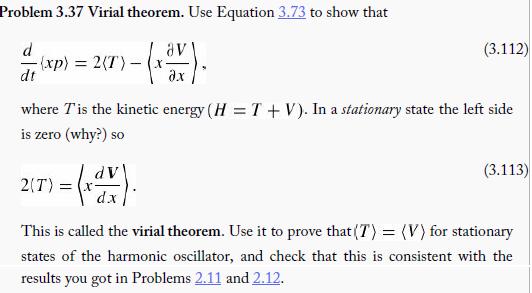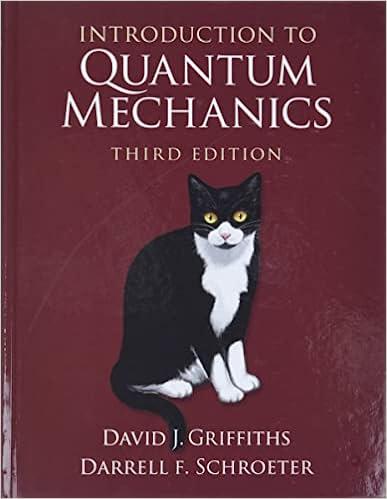Suppose the Hamiltonian H, for a particular quantum system, is a function of some parameter ; let
Question:
Suppose the Hamiltonian H, for a particular quantum system, is a function of some parameter λ; let En(λ) and Ψn(λ) be the eigenvalues and eigenfunctions of H (λ). The Feynman Hellmann theorem states that
 (assuming either that En is nondegenerate, or—if degenerate—that the Ψns are the “good” linear combinations of the degenerate eigenfunctions).
(assuming either that En is nondegenerate, or—if degenerate—that the Ψns are the “good” linear combinations of the degenerate eigenfunctions).
(a) Prove the Feynman–Hellmann theorem. Use Equation 7.9.
(b) Apply it to the one-dimensional harmonic oscillator, (i) using λ = ω (this yields a formula for the expectation value of V), (ii) using λ = ћ (this yields (T)), and (iii) using λ = m (this yields a relation between (T) and (V)) . Compare your answers to Problem 2.12, and the virial theorem predictions (Problem 3.37).



Step by Step Answer:

Introduction To Quantum Mechanics
ISBN: 9781107189638
3rd Edition
Authors: David J. Griffiths, Darrell F. Schroeter





